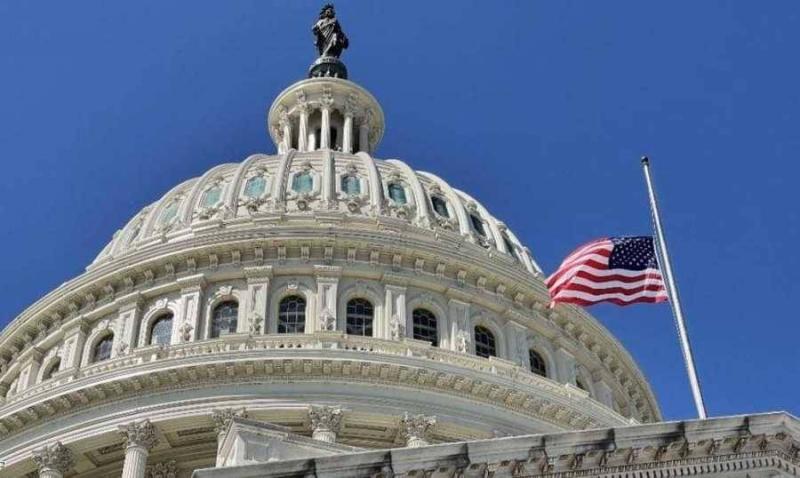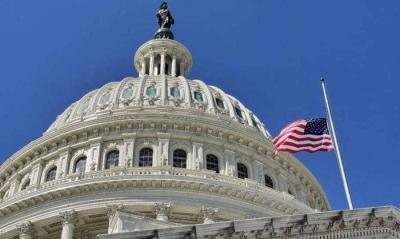A parliamentary reference acknowledges that the absence of a president is a major problem, especially as the region undergoes significant regional and international movements and agreements. Lebanon finds itself without a president who can engage with this activity or connect with the outside world to understand what is happening. Even the delineation of land borders, regarded as an affirmation of borders, will not occur without the president. Diplomats, in their daily movements, sense a structural problem due to the absence of the presidential head, as reported by "Nidaa al-Watan."
The presidential file has become a hostage to developments from Gaza to southern Lebanon, despite Secretary-General of "Hezbollah" Hassan Nasrallah's insistence that there is no link between the two events, yet the facts suggest otherwise. The situation in Gaza and the south has taken priority in diplomatic attention, sidelining initiatives from those involved. The quintet’s efforts appear doubtful of success, as its members recognize the difficulties of their role against the backdrop of war drums. Disagreements still affect their functioning, with each ambassador attempting to play a different role than their colleagues. The quintet has divided into two teams: Saudi-French versus Qatari-American, as gleaned by parties in contact with several of its members. The lack of a decision undermines the importance of their movements.
During the entire period that former Prime Minister Saad Hariri was in Lebanon, Saudi Ambassador Walid Bukhari stayed out of sight to avoid visiting Beit al-Wasat. He is reported to have said that all the names circulated for the presidency are outside the options. The head of the Marada Movement, Sleiman Frangieh, has a different opinion, according to close associates, asserting that his chances have not yet run out and that he is not withdrawing his candidacy. He feels no issue with being elected by votes from deputies outside the Lebanese Forces and the Free Patriotic Movement, contrary to the duo that considers voting from one of the Christian blocs a mandatory path.
According to "Nidaa al-Watan," in contrast to the European show of concern towards Lebanon, the American side is more realistic. There is now a conviction that there will be no discussion of any issue in Lebanon until after the Gaza war. Visitors to the American capital report that the primary concern is the situation in the south and border demarcation within a comprehensive basket that could include Israel's withdrawal from Shebaa Farms and Kfarchouba Hills in exchange for maintaining control of the liberated areas under UNIFIL forces. In the presidential elections, the focus has been more on the characteristics desired than on circulating names, with an insistence on selecting a president outside the recognized political or security elite. Visitors sensed a desire from the U.S. to expedite this process, paving the way for demarcation to ensure the security of Israel's northern borders.
Meanwhile, a delegation from the U.S. Committee on Foreign Affairs and Security is visiting Beirut today for several hours, where they will meet with the Speaker of Parliament Nabih Berri, Prime Minister Najib Mikati, Foreign Minister Abdullah Bou Habib, and Army Commander General Joseph Aoun, aiming to discuss aid to the army and its role concerning the implementation of resolution 1701. It is known that several members of Congress have previously launched a campaign against the aid provided to the Lebanese army, questioning its role in guarding the southern borders.
In recent hours, a number of change MPs were guests at a dinner held in their honor at the American embassy, where attendees discussed the presidential election, the role of MPs, resolution 1701, and the war in southern Lebanon, with MPs hearing criticism and disappointment regarding their role. Notably, a statement was made yesterday by MP Melhem Khalaf, in the presence of MPs Osama Saad, Paula Yaacoubian, Abdul Rahman Al-Bizri, Najat Aoun, Ibrahim Mneimneh, Charbel Massaad, Firas Hamdan, Elias Gradi, and Melhem Khalaf, calling for MPs to take responsibility and adhere to the constitutional provisions by electing a president.
Discontent regarding the delay in electing a president has also reached Bkerke, where visitors conveyed Patriarch Bechara Al-Rahi's displeasure over the failure to open the doors of parliament to elect a president, holding the Speaker responsible and indicating intentions to escalate in the coming days. The same discontent reportedly extends to the Vatican, where its ambassador in Lebanon, Bishop Paulo Borgio, visited Speaker Nabih Berri yesterday. Concurrently, a high-profile statement from the Leader of the Free Patriotic Movement, Gibran Bassil, is expected today regarding some issues related to partnership, rights, and the presidency.
These movements and positions do not change the fact that the only development in the presidential file is the continuation of a void that offers nothing new. A key party involved in the presidential elections, Hezbollah, is focused elsewhere. The war it leads against Israel on the southern front is its top priority. In this time of uncertainty, it claims to support any internal initiative and encourages internal dialogue, but does not intend to reconsider adopting the candidacy of its ally, Sleiman Frangieh. The current conditions do not permit Hezbollah to modify its options, especially in light of the regional turmoil and escalating war, which could reach a point where Israel would not hesitate to target any place it wants in Lebanon, even outside the south and border regions.




